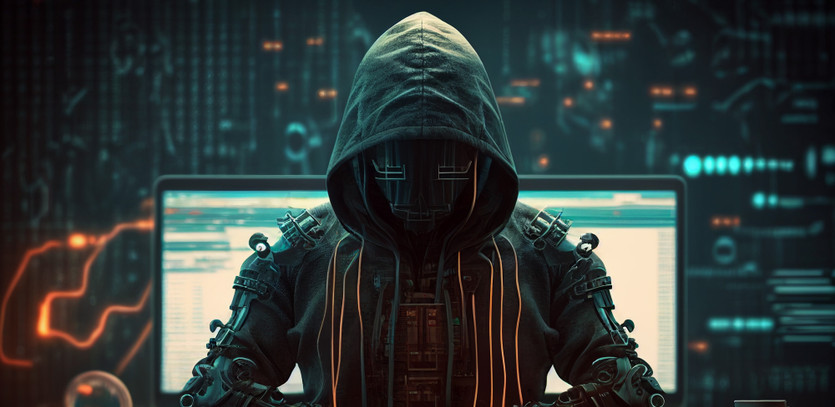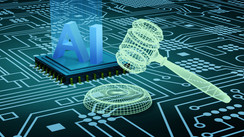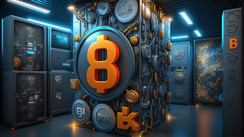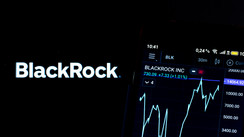The Rise of AI and its Implication for Various Industries
Generative artificial intelligence (AI) is not only producing a wealth of content but also stirring up immense enthusiasm. With the advent of AI models like ChatGPT, generative AI technologies are being rapidly embraced across various sectors, performing tasks such as answering user inquiries, generating fresh content, scheduling appointments, assisting with programming tasks, and more.
The AI wave mirrors the hype that ensued around blockchain with the introduction of decentralized ledger technology in the previous decade. With visions of limitless possibilities, disruptive applications of generative AI are emerging, posing a challenge to tech giants such as Google and its stronghold over search.
Lesser known, however, are the potential influences of generative AI on blockchain technology.
Generative AI: Enhancing Smart Contract Development
Blockchain's smart contracts are among the most revolutionary aspects of the technology, facilitating transaction automation without intermediary involvement. These contracts are fundamental to blockchain's decentralization, but there's ample scope for enhancement. This is where tools like ChatGPT could play a significant role.
For example, ChatGPT could simplify smart contract creation for developers by aiding with the development and testing of the underlying code. Despite developers being comfortable with 'copilots' such as those found on GitHub, generative AI can dramatically augment these tools. Smart contracts, typically written in programming languages like Solidity, can be intricate and prone to errors. The issue lies in the manual coding, where a small mistake can have far-reaching implications.
ChatGPT, utilizing its natural language processing capabilities, can assist developers in code creation with a more conversational approach. Developers can define the desired code, and ChatGPT can handle the heavy lifting, accelerating the process while reducing errors, consequently enhancing the overall quality of smart contracts.
Moreover, ChatGPT can help developers identify and rectify issues with their existing code.
Streamlining Smart Contract Execution
ChatGPT's capabilities extend to automating smart contract execution by identifying code errors through the analysis of contract-generated data and notifying developers for necessary amendments. This technology boosts accuracy, speeds up execution, and removes the need for manual monitoring.
Furthermore, ChatGPT can identify patterns in contract data, offering optimization suggestions to enhance execution speed and decrease gas fees.
Reinforcing Blockchain Transaction Security
Despite blockchain being regarded as highly secure due to its immutable nature, it isn't entirely invulnerable to security threats, including 51% attacks, insider threats, and cyberattacks.
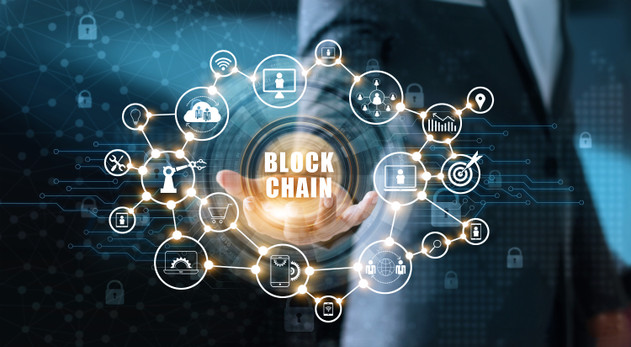
Generative AI, such as ChatGPT, offers potential solutions for these threats. For instance, it can analyze network traffic to detect unusual activities, monitor social media to identify discussions about vulnerabilities and attacks, and scrutinize network behavior to spot patterns that could suggest an insider threat, alerting administrators as needed.
Enhancing User Education
In the blockchain industry, ChatGPT's most widespread application is user education. Since its rise to prominence last year, many leading crypto companies have incorporated this technology to develop their chatbots. Binance, for instance, has created a chatbot named Sensei for its Binance Academy education portal.
Crypto.com also announced a new AI companion named Amy, currently in pilot mode, designed to keep users informed about crucial market changes such as real-time token price movements and project updates.
Additionally, Solana has developed a ChatGPT-based plugin that allows users to retrieve information directly from the network using conversational prompts, while Astar Network has further extended the AI usage with Astari, a ChatGPT-based AI-assistant with extensive Astar Network knowledge.
The Future of Generative AI in Blockchain
The proliferation of early use cases indicates that generative AI, including ChatGPT, will undoubtedly leave its mark on the blockchain industry. Generative AI faces challenges, including improving accuracy, reducing bias, and enhancing safety. However, these hurdles exist to be surmounted. As innovators explore the potential of generative AI in blockchain, end users will reap the benefits with more intelligent, secure smart contracts and practical tools for learning and exploration.

